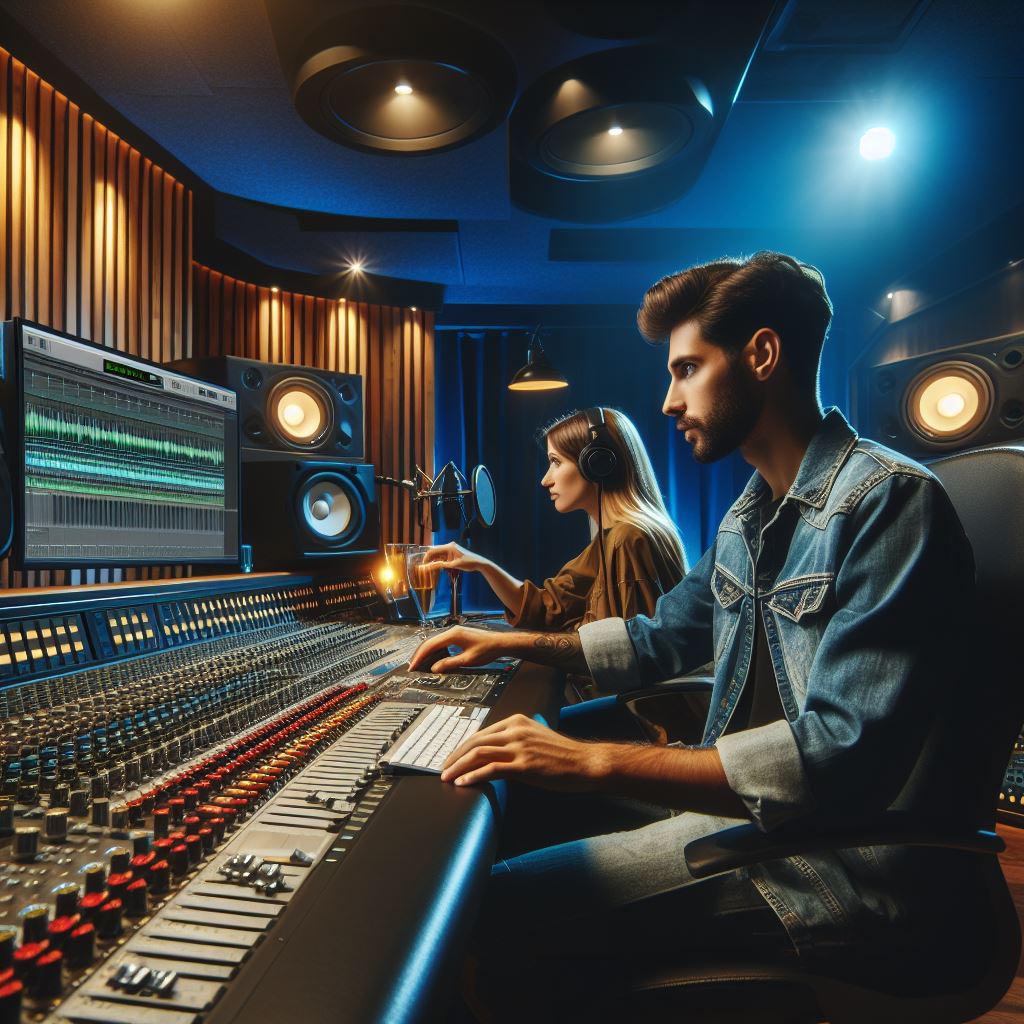Mastering
Mastering is the final step in the music production process, where the final mix of a song or album is prepared and optimized for distribution.
It involves a combination of technical and artistic processes to ensure that the audio sounds polished, cohesive, and consistent across different playback systems.
The Primary Goals of Mastering
Balance and Equalization
Ensuring that the frequency balance of the audio is even and that each element of the mix (bass, midrange, treble) is appropriately represented.
Dynamic Range Control
Managing the dynamic range to ensure that the overall volume is consistent and optimized for various playback devices, such as headphones, speakers, and different audio systems.
Stereo Imaging
Adjusting the stereo width and positioning of elements within the mix to enhance the overall spatial presentation.
Correction of Errors
Addressing any technical issues, such as clicks, pops, or unwanted artifacts, that may have been overlooked during the mixing stage.
Sequencing
Arranging the tracks in the desired order for an album, adding fades or crossfades between tracks, and ensuring a smooth transition between songs.
Format and Specifications
Adhering to specific technical requirements and formats for the intended distribution medium, whether it’s streaming services, CDs, vinyl, or other formats.
Quality Control
Ensuring that the final product meets industry standards and is free of any defects or issues that could affect the listener’s experience.
Oure Mastering Engineer
Mastering is typically done by a specialized audio engineer, known as a mastering engineer, who has expertise in the finalization of audio for commercial release.


The mastering engineer uses a combination of specialized software, equalization tools, compression, and other processing equipment to achieve the desired results.
It’s important to note that mastering is a distinct stage from mixing, which focuses on balancing individual tracks and elements within a song. While mixing is usually done by the recording and mix engineer, mastering is a separate and specialized finesse.

Don’t do it yourself
Mastering is an art, a specialized skill. While we can introduce you to its fundamentals in just 5 minutes, refining this craft is a lifelong journey.

The intricacies of shaping sound to perfection demand dedication and continuous learning, making mastering a profound and rewarding pursuit in the world of audio excellence.
Mastering is magical, but it’s not magic.
Spench
Do you need help mastering?
How to prepare your mix
When preparing your music for mastering, it’s important to ensure that the audio files you provide are in the best possible condition for the mastering engineer to work with. Here are some things you should avoid sending for mastering.
Files Format, Bit Rate and Sample Rate
Incorrect File Format
Stick to industry-standard file formats like WAV or AIFF. Don’t send MP3 files for mastering, as they are compressed and may result in a loss of audio quality.
Low-Quality Files
Don’t send low-bitrate or heavily compressed files. Always provide high-quality, uncompressed audio files, preferably in WAV or AIFF format.
Wav 24-bit is OK. Wav 32-bit float files a strongly preferred.
Incorrect Sample Rate and Bit Depth
Ensure that your project settings match the final desired sample rate and bit depth. Sending files with mismatched settings can lead to issues during mastering.
44.1 khz or 48 khz
Peak Levels
Clipping and Distorted Tracks
Avoid sending tracks with clipping or distortion. Ensure that your mix has enough headroom to prevent these issues.
Master Bus/Channel Processing
Unnecessary Processing
Don’t add excessive processing to your mix during the export process. Keep it clean and allow the mastering engineer to apply necessary processing.
Unwanted Effects
Remove any effects that are not an integral part of your mix. For example, don’t add reverb or delay to your mix during the export process.
Over-compressed Mixes
Avoid over-compressing your mix during the mixing stage. Allow some dynamic range so that the mastering engineer can apply compression appropriately.
Unbalanced Frequencies
Ensure that your mix has a balanced frequency spectrum. If there are extreme imbalances, the mastering engineer may face challenges in achieving a polished final product.
Unlabeled or Misleading Tracks
Clearly label all tracks with accurate titles, and if applicable, include any specific instructions for the mastering engineer. This helps in organizing the session properly.
No Reference Mix
Provide a reference mix that represents the sound you’re aiming for. This can serve as a guide for the mastering engineer to understand your preferences.
A reference mix, also known as a reference track, is a professionally-produced song or audio recording that is used as a benchmark or guide for comparing and evaluating the sound quality, balance, and overall mix of your own music or audio project.
It serves as a reference point to help you achieve a similar level of sonic quality and production value in your own work.
By comparing your mix to a reference mix, you can make adjustments and improvements to ensure that your music sounds great on different playback systems and meets your desired artistic vision.
Communicate with our mastering engineer
Remember that effective communication with the sound engineer is key. Provide any relevant information about your artistic vision and preferences to ensure the best possible outcome for your music.
